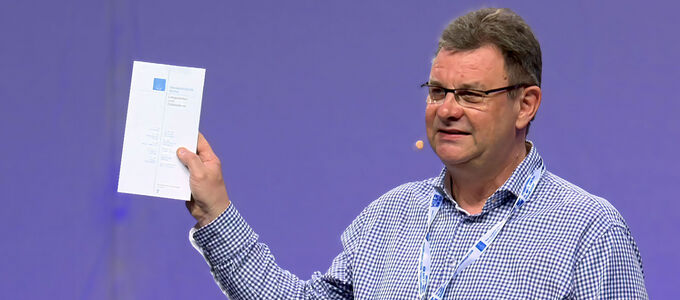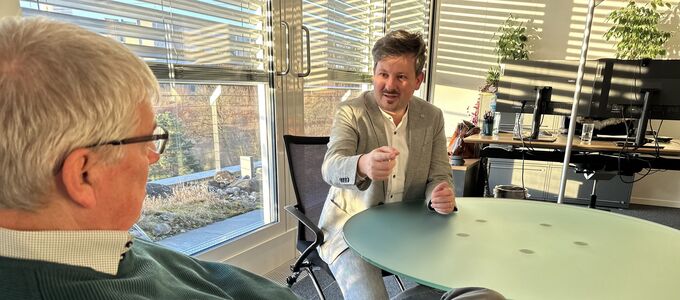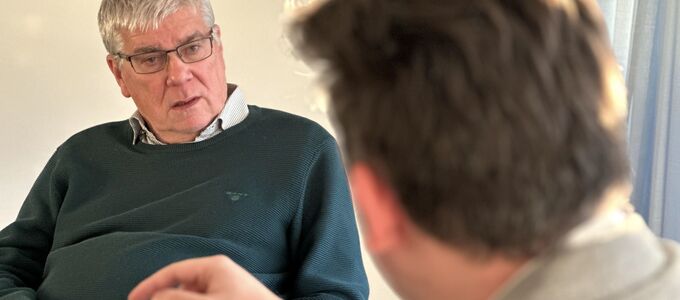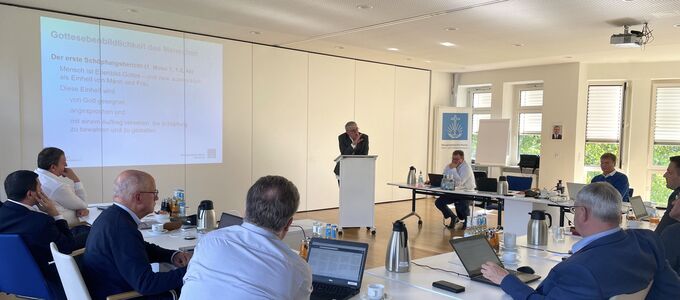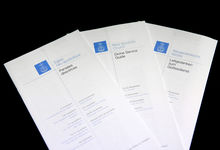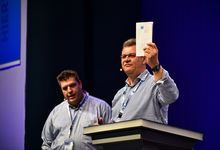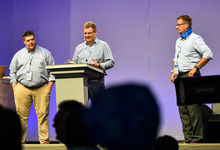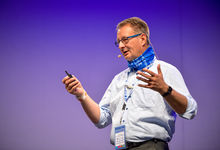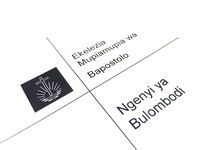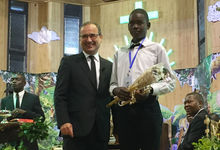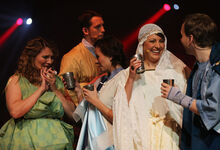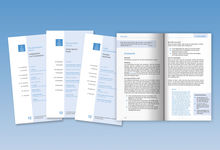Decisive is what happens locally
The Divine Service Guide is looking for an editor. The job advertisement raises questions. Well, don’t Apostles write the articles? Why is this preaching aid necessary in the first place? And why is it the way it is? nac.today dug a little deeper.
Talking about the subject are Apostle Jürgen Loy as chairman of the Divine Service Guide Working Group, Reinhard Kiefer as theological advisor and responsible editor, and Simon Heiniger, who is responsible for international project management at the international Church offices, among other things.
Why do we need the Divine Service Guide at all?
Kiefer: The Divine Service Guide is a kind of bonding agent that connects the global apostolic church. Seen from a global aspect, we do not have all that much in common culturally and socially. But we do have the Catechism and the Divine Service Guide in common.
Loy: The gospel of Jesus is universal. It is one message that transcends all cultural differences. The Divine Service Guide articles are written by Apostles, which is also intended to ensure that the gospel is preached in an apostolic manner in every congregation. Naturally in a wide variety of forms and colours, so to speak.
And what does the Divine Service Guide set out to do?
Kiefer: Well, first the content of the Bible text is presented. And then comes the transfer to our doctrinal system, what the Church teaches, the contemporary interpretation. This incorporates the Catechism and any current doctrinal papers.
We also have people who do not have a Bible at all. This is not a given everywhere. In this respect, a guideline is needed. Otherwise, there is a risk that at best only emotions will be conveyed, but no content.
But do these texts have to be so stiff?
Loy: The Divine Service Guide is not a fully written sermon. This is a common misunderstanding. Rather, it is the basis on which the ministers are to build their sermons. The explanations must be applicable globally, in all the different languages and cultures in which our faith is at home. That is why they are kept somewhat abstract.
Heiniger: We compare this to the image of a tree: the Bible text and the message are the trunk, the individual aspects are the branches and twigs. Rooted in our teaching and inspired by the Holy Spirit, thoughts and impulses develop while the minister prepares for the divine service. Only then does the tree become green and alive.
And where does this lively, fresh sermon come from?
Kiefer: This can only take place locally, the inculturation that the text becomes an African sermon, an Asian or Canadian sermon or an Argentinian sermon. You can also tell the officiant: “Familiarise yourself with the doctrine and the Divine Service Guide and then look at your congregation and its sensitivities.” It is not just what is written in the Divine Service Guide that is decisive, but what the officiant makes of the content.
It was mentioned that the authors are Apostles. But why are you now looking for an editor?
Loy: Apostles do not become theologians through ordination. That is why we already have theological support today. In the same way, not every Apostle is gifted in the art of writing. A certain amount of support is also useful here. This has already been taking place so far. But we now want to prepare the ground for the future together with the existing team.
Does this mean that there will be changes to the form of the Divine Service Guide in the foreseeable future?
Heiniger: This is the responsibility of the Chief Apostle. Together with the District Apostles he sets the pace here. But our Church has already proven itself to be open and capable of development. As important as the Divine Service Guide is, so too is the way we approach and handle it. Many Regional Churches offer good training programmes in this area, including the topic of sermon preparation. Currently, work is underway to provide training for those ministers who do not have access to any yet—independent of time and place.
Anyone reading the job advertisement may well ask themselves, “Who is supposed to be able to do all of this?” It seems as though the Church is looking for an all-rounder?
Heiniger: It may well seem as if we are looking for an endurance sprinter or, alternatively, a fast long-distance runner. We are aware that we are describing skills that one person alone cannot have. There is already a working group, which will remain in place. The job description reflects the overall picture. Some knowledge can be acquired on the job. However, the subject is too important for us to take a wait-and-see approach and leave it to chance, both for us and for all the applicants.
Loy: Knowledge alone is no guarantee of expertise. What we are definitely looking for is confidence and creativity in text composition and a broad knowledge of our New Apostolic doctrine, combined with a basic understanding in theology. Very important in all of this is the fact that the direct cooperation with the Chief Apostle ensures that the teaching authority of the Church is properly expressed.
This video series and this article explain in detail how the Divine Service Guide is compiled.


